Notebook
-
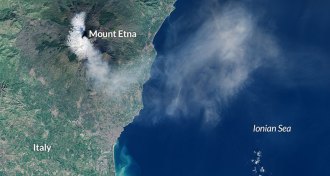 Earth
EarthSuccession of satellites keep eye on Earth
50 years after plans were laid for the first Earth-observing spacecraft, the youngest Landsat satellites are still flying and imaging the planet’s surface.
-
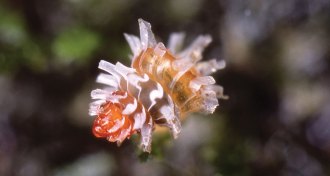 Animals
AnimalsThe fine art of hunting microsnails
Flotation, tact and limestone all prove vital to the quest for microsnails.
By Susan Milius -
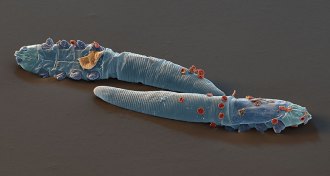 Animals
AnimalsThe mites living on your face probably run in your family
Demodex folliculorum mites, which live on human skin, have probably evolved with their hosts over time.
-
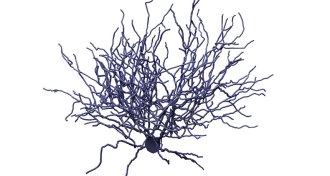
-
 Health & Medicine
Health & Medicine50 years ago, a promising agent pulled
DMSO was promised to cure everything from headache to the common cold. But human testing stopped in 1965.
-
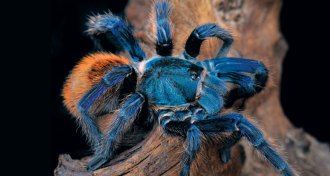 Animals
AnimalsWhen tarantulas grow blue hair
Azure coloring is surprisingly common in the spiders, though they themselves are colorblind.
By Susan Milius -
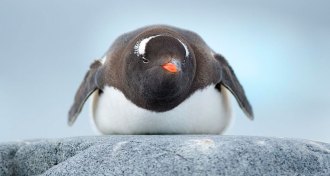 Physics
PhysicsAircraft industry could take tips from penguins
Tiny grooves and an oily sheath prevent water droplets from freezing on the feathers of some penguins.
By Andrew Grant -
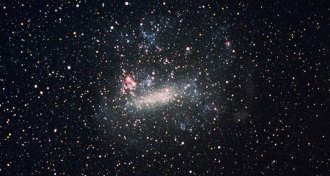 Astronomy
AstronomyThis white dwarf is hotter than the rest
A new record holder for hottest white dwarf sizzles at about 250,000˚ Celsius.
-
 Health & Medicine
Health & MedicineCow bites and spacecraft injuries enliven new medical diagnostic codes
The 10th edition of International Classification of Diseases went into effect in 2015, and it included some interesting additions.
By Bruce Bower -
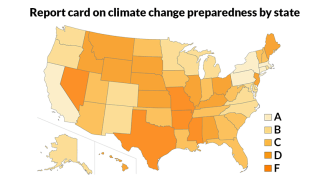 Climate
ClimateReport card shows which states are best prepared for climate change
A preparedness report card shows that some states aren’t ready for the extreme heat, droughts, wildfires and flooding that may come with climate change.
-
 Genetics
GeneticsRoosters run afoul of genetic rules
Moms aren’t always the only ones that pass mitochondrial DNA to offspring, a study of chickens finds.
-
 Climate
ClimateFireworks brighten the sky but dampen the view
Fireworks and other pyrotechnics severely reduce visibility during celebrations such as New Year’s Eve and Guy Fawkes Day, researchers report.